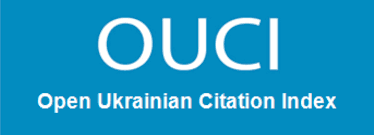THE PARTICULARITIES OF SPECIFIC IMMUNE FORMATION AT POULTRY AFTER VACCINATION WITH INACTIVATED THREEVALENT VACCINE AGAINST AVIAN INFLUENZA OF H5, H7 SUBTYPES, AND NEWCASTLE DISEASE
D. V. Muzyka
This email address is being protected from spambots. You need JavaScript enabled to view it.This email address is being protected from spambots. You need JavaScript enabled to view it.
National Scientific Center Institute of Experimental and Clinical Veterinary Medicine, Pushkinska St. 83, Kharkiv, 61023 Ukraine
Highly pathogenic avian influenza and Newcastle disease still pose a significant threat to the poultry industry worldwide. One way to monitor and control these diseases is vaccination. Development of multi-component vaccines against Newcastle disease and avian influenza with different subtypes of hemagglutinin is perspective. The need for establishment of means of specific prophylaxis is confirmed by long-term circulation of influenza virus subtype H5 in the world, as well as the emergence of new strains of virus subtype H7N9. Therefore, the aim of our research was to create a domestic trivalent vaccine against avian influenza subtypes H5, H7 and Newcastle disease, and to explore the characteristics of specific immunity formation in birds of different species after vaccination with these biological product. The paper presents the results of studies on the antigenic properties of the trivalent inactivated vaccine against highly pathogenic avian influenza subtype H5, H7 and Newcastle disease, created on the basis of domestic strains. It was established immune response to twice administration of the experimental samples of vaccine of differfent with antigens ratios at poultry during 120 days. The features of the dynamics of specific antibodies accumulation to each of the virus in chickens and ducks is defended.
Keywords: HIGHLY PATHOGENIC AVIAN INFLUENZA, AVIAN INFLUENZA OF H5, H7 SUBTYPES, NEWCASTLE DISEASE, VACCINATION, INACTIVATED THREEVALENT VACCINE














